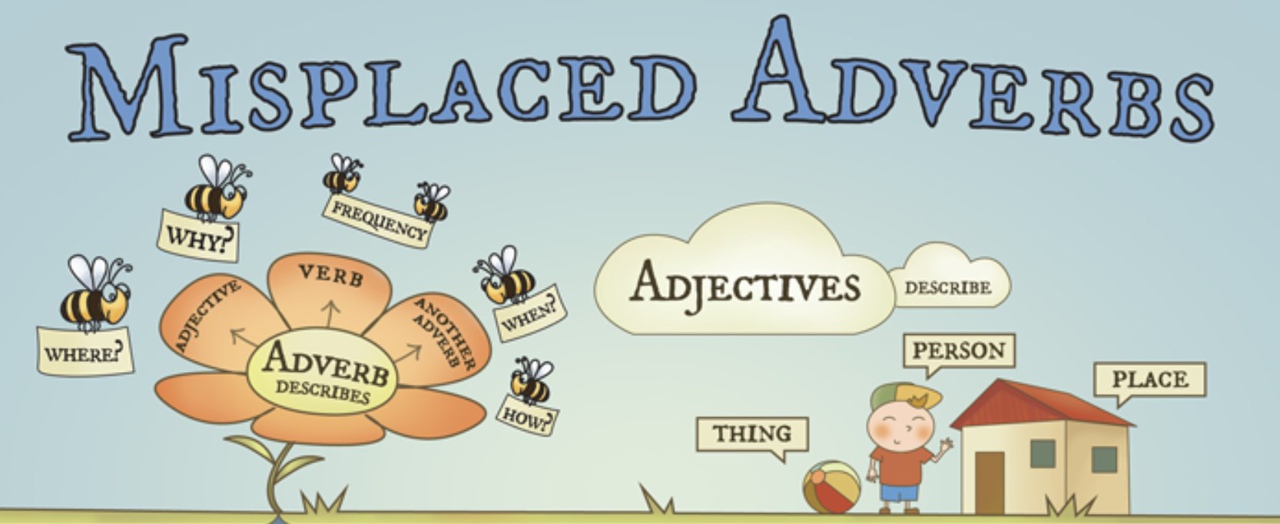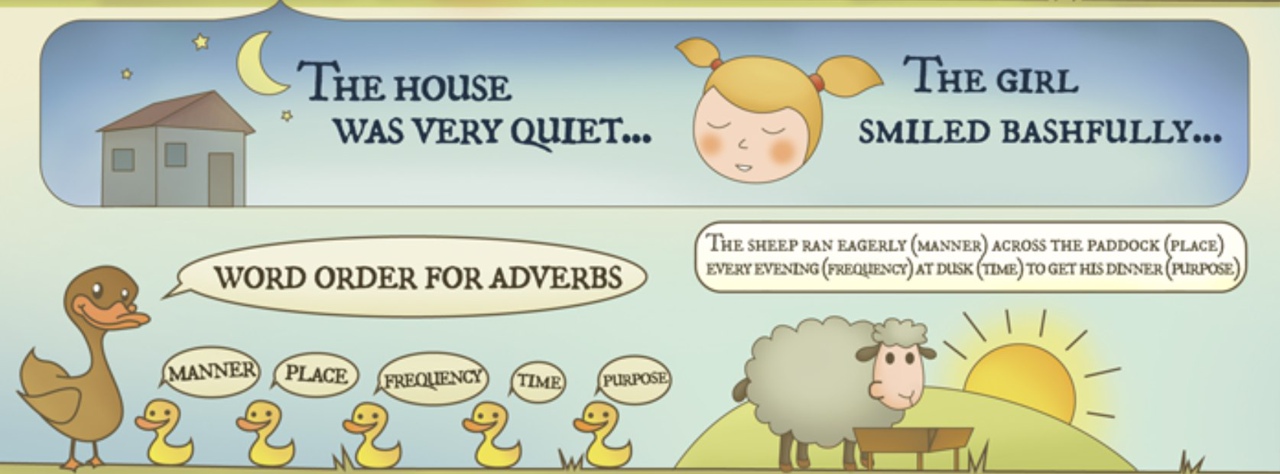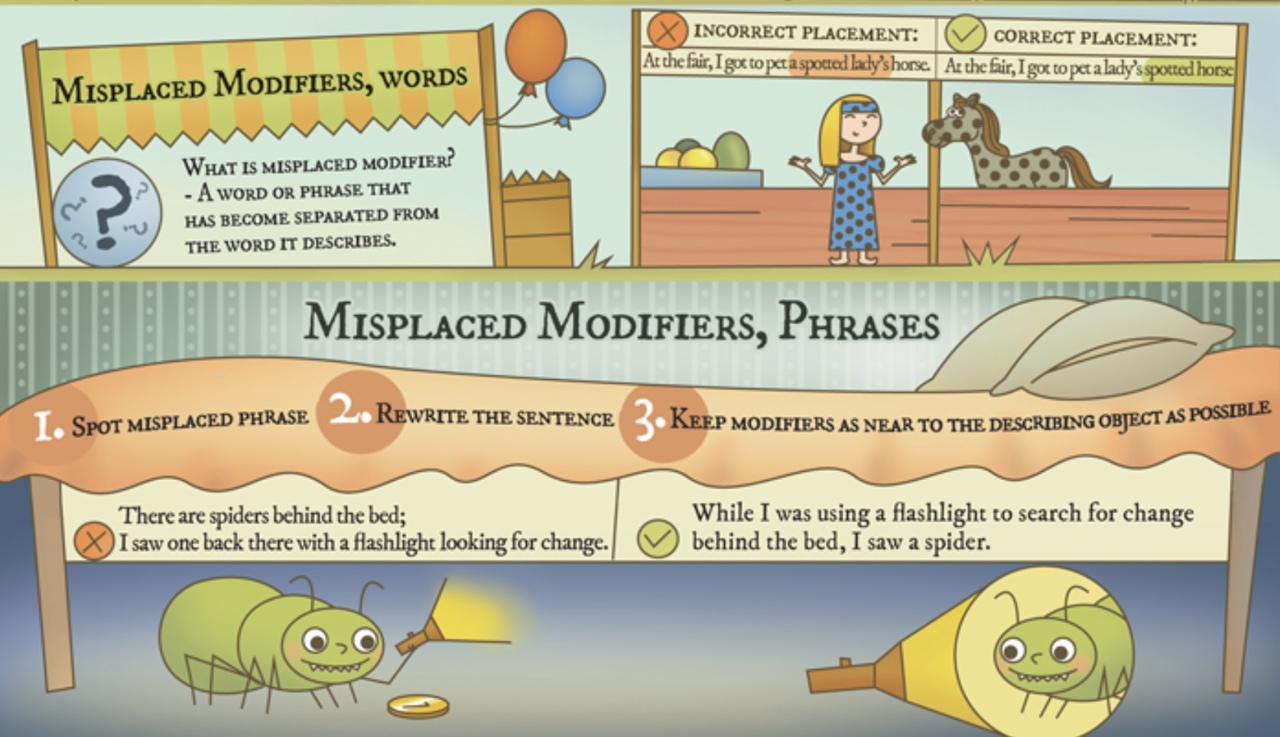
A Quick Refresher on Adverbs and Adjectives
An adjective describes a person, place or thing, while an adverb describes an adjective, verb or another adverb. Adverbs do not directly describe nouns and often end in -ly. They provide information on where, why, how, when and frequency.
The girl smiled bashfully
I ran up the stairs and quickly fell back down.
The house was very quiet.
Tip: if the word in question can be used to describe the word cow, it is an adjective and an adverb.
Incorrect: The cow is playfully. Bad adverb! Shoo!
Correct: The cow ran playfully. The adverb modifies the verb ran.
Correct: The cow is playful. The adverb is changed to an adjective and modifies the noun cow.
Word Order for Adverbs
When more than one adverb is used in a sentence, there is a rule of order: manner, place, frequency, time and purpose. Adjectives are also required to fall in a certain order, but the rules are more forgiving for adverbs. They can be moved around from one end of the sentence to the other, and if a sentence sounds awkward, adverbs can be rearranged to make it sound more pleasant. The following example is extreme, but this pile of adverbs illustrates the ordering rules.
The sheep ran eagerly (manner) across the paddock (place) every evening (frequency) at dusk (time) to get his dinner (purpose).
Misplaced (Dangling) Modifiers, Words
This term refers to a word or phrase that has become separated from the word it describes, and it happens with great frequency. Here is an example of single word placement, and then we will move on to correct placement of descriptive phrases.
Incorrect placement: At the fair, I got to pet a spotted lady’s horse.
Unless this woman suffers from some weird skin condition, the adjective spotted needs to be moved so it is next to the word it describes.Correct placement: At the fair, I got to pet a lady’s spotted horse.Misplaced Modifiers, Phrases
Modifying phrases are varied: up a tree, without stopping, after lunch. As easily as a single word can sneak into the wrong area of a sentence, entire phrases can wind up in the wrong place and cause utter chaos. The following example comes from an actual conversation; your host is more amused than embarrassed to be the source.Sure you did: There are spiders behind the bed; I saw one back there with a flashlight looking for change.
Unless you just saw a spider trying to drag a quarter out from under your bed, this sentence fails on every level. When single modifiers are in the wrong spot, there is a quick fix, but when entire descriptive phrases are involved, it might be easier to completely rewrite the sentence. Keep phrases near their subject for clarity. Much better: While I was using a flashlight to search for change behind the bed, I saw a spider.There are many funny examples of misplaced modifiers, and the internet has entire lists of them. Would you care to share any?
-

-
